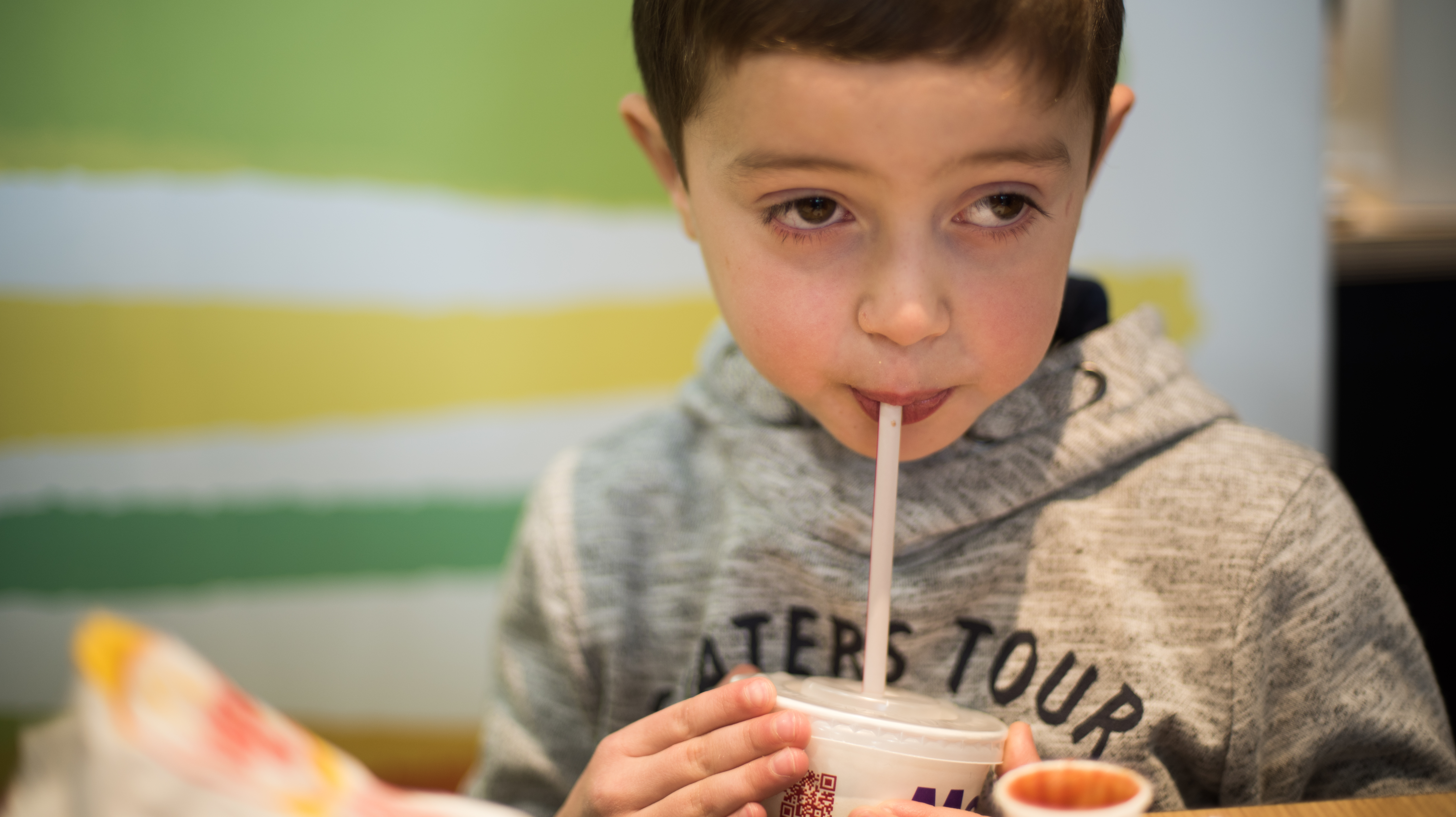Baltimore Banishes Sugary Sodas From Kids' menus
As obesity plagues more and more children, health officials are trying to come up with plans to help kids eat healthier. Like eliminating cartoon characters from sugary breakfast cereals in the U.K., for example. Also, some cities have eliminated sugary drinks from kids' menus, only permitting flat, sparkling, or flavored water; milk; and 100-percent fruit juice. Now Baltimore announces that it is becoming the largest city to do so, mandating that restaurants pull sugary drinks from all kids' menus under the Baltimore City Healthy Kids Meals Bill, which went into effect last week. CNN reports that "Baltimore's health department will enforce the law through its inspection process, and those restaurants found violating it could face a $100 fine."
Shawn McIntosh, executive director of Sugar Free Kids Maryland, tells CNN that it's not really a ban, since parents can still order soda for the kids if they are so inclined. But the importance here is eliminating the option for the kids as they pick out their own drinks, "so that what kids are confronted with are healthy options."
The Restaurant Association Of Maryland Restaurants (unsurprisingly) protested, pointing out that single-serving cartons of milk, for example, will cost them more than a squirt of Coke from the bar gun. But the current health situation for kids is dire; Baltimore's health department states that "one in three school-age children in Baltimore is either overweight or obese, and one in four drinks at least one soda a day." CNN points out to a 2001 Harvard study that found that "just one sugary beverage per day can raise a child's risk of becoming obese by 60 percent," so hopefully the kids will lay off the jungle juice (our family's term for Sprite) in favor of some healthier options. (Although doesn't 100-percent fruit juice still have a ton of sugar? Just throwing that out there.)
